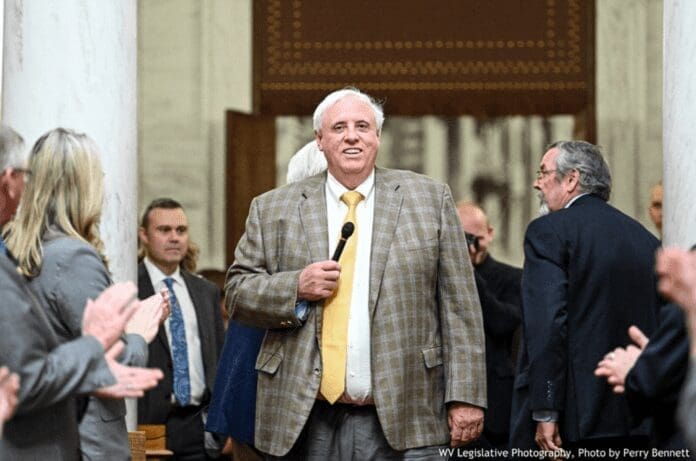
In the world of politics, jabs and pointed remarks are often expected.
For example, this past week during his weekly briefing, the W.Va. Gov. Jim Justice suggested the soon-to-be-former mayor of Wheeling, “Get a life.” This comment came after the mayor took to social media to criticize the Governor’s presence at Independence Hall on West Virginia Day, June 20. Interestingly, the mayor of the host city was not present that day while Debbie Jones, the manager of Independence Hall, was doing a fantastic job with the day’s festivities.
Did this comment mark a notable escalation, or did it indicate the governor’s views on the outgoing mayor and signify irrelevance in the equation?
In this fast-paced, immediate-gratification world, and especially that of modern politics, social media is a powerful tool for politicians to engage with their constituents, rally support, and challenge their opponents. However, not all politicians use it as a virtual, digital battleground.
During his tenure as mayor, Elliott frequently used social media to share his thoughts and commentary. Throughout this campaign, for United States Senate, he has been making comments about his opponent, frequently on X. Many of these have been negative.
The Governor does not approach the people of West Virginia or his role as the Chief Executive of the state in the same way. Gov. Justice has always come to the people, mostly through media briefings, and has seen his popularity grow by doing such.
Was the Governor’s simple comment, “Get a life,” meant to frame Elliott as out of touch, undermining the mayor’s credibility, and rallying support among his own base?
Justice’s approach to politics is what many claim to desire, deeply rooted in his identity as a businessman and problem-solver, rather than a conventional, career politician.
Was it said with indifference to the many social media provocations, coming from a place of strategic calculations to the broader political landscape of West Virginia?
Justice’s approach to politics is what many claim to desire, deeply rooted in his identity as a businessman and problem-solver, rather than a conventional, career politician. His experience managing large organizations such as The Greenbrier and large coal operations has likely shaped his preference for concrete action over rhetorical exchanges, particularly on digital platforms.
While the Governor still has six months left in his gubernatorial term, he could see engaging with Elliott as more of a distraction which could take away from the important job of governing the state. Justice has repeatedly emphasized his commitment to delivering results for West Virginia, such as economic development and infrastructure improvements, both of which the City of Wheeling has been the benefactor.
Another significant factor is the demographic and composition of our beautiful Mountain State. Unlike largely urban states, where social media penetration is high and this political discourse plays out online, West Virginia is largely rural with much of the population living in areas with limited internet access. Still, in areas with access, people would rather speak to their neighbors over a good glass of iced tea or lemonade.
For many West Virginians, traditional forms of communication, such as local news reports, town hall meetings, and community events remain more influential than X or Facebook. Gov. Justice is well aware of his constituents’ preferences and understands his political capital is better spent engaging with people directly in their communities, like he did when he was in Wheeling on June 20.
Social media platforms are often criticized for creating echo chambers where users are exposed to views that align with their own. Engaging in online arguments can be futile, as they seldom change minds but are often successful in reinforcing pre-existing beliefs. By not participating in social media bantering, the Governor ensures his message remains consistent and unpolluted by the noise of online confrontation.
Ultimately, the Governor’s decision to ignore Elliott’s social media provocations reflects a broader understanding of effective governance. While social media can be a valuable tool for certain aspects of political communication, it is not the end-all-be-all of political strategy. The Governor’s focus on long-term governance, direct engagement with constituents, and tangible results position him as a leader who is more concerned with the substantive progress of the state.
He not only maintains his political brand but also ensures his administration remains focused on the issues that truly matter to the people.
It will be interesting to see how this campaign unfolds over the next several months. Elliott has been traveling the state and will be able to campaign full-time, barring family obligations as a husband and father, as his term as mayor ends today.
Will the Governor pay increased attention to his digital remarks? Only time will tell.

